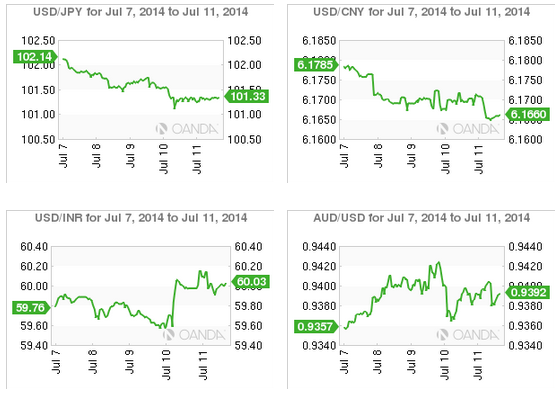Easy money policies could wreak havoc in emerging economies like India’s. Newly appointed Prime Minister Narendra Modi’s challenge is two-fold: reshape Indian politics and create lasting economic reform Political uncertainty may be one of the greatest detriments to the stability of emerging markets but it’s the end of accommodative monetary policies in advanced economies that could strike a fatal blow.
India held national elections recently and its newly appointed leader is expected to perform near miracles quickly. In fact, Prime Minister Narendra Modi must tame an inflationary beast and find a panacea to revive his country’s troubled economy.
Modi is a controversial figure in Indian politics since being elected to power with a majority government last May – his being the first majority government in India in 30 years. The Hindu nationalist leader is under pressure to prove his government has the mettle to transform Asia’s third-largest economy when it unveils its annual budget on Thursday. But can it produce the lightning-fast turnaround the country needs by way of implementing reforms in a piecemeal fashion? India’s political landscape simply won’t allow for the Modi administration to dive headlong into societal reform in one fell swoop. A more tempered approach will be necessary.
Tempered is a good description of the budget that was introduced by Indian Finance Minster Arun Jaitley. The national budget was a mixed bag of promising reforms and foreign investment attracting measures contrasted with disappointing omissions and odd expenses. The majority of analyst are bullish on India, more because of the disastrous 2013 than the actual expectation than Modi will boost Indian growth in the short term.
Achieving Economic Reform is Crucial
Emerging market currencies have been resilient in the face of geopolitical events but the main exogenous event will be the eventual rate hike by the U.S. Federal Reserve. A year ago in May, former Fed Chairman Ben Bernanke sent emerging market currencies tumbling upon mentioning tapering the bank’s bond-buying scheme. Helicopter Ben’s lack of details drove the appetite for high-yielding currencies down though they fared well following the onset of the 2008 financial crisis. The INR was facing twin deficits and political uncertainty due to general elections and the rupee was one of the biggest losers. The USD appreciated more than 18% when the USD/INR rose from 56.1101 in May to 66.29 in September.
Modi Takes Aim at Foreign Investment
The previous Indian government tried various tactics that ranged from gold import caps up to central bank officials personally calling trading desks to discourage the selling of the INR to curb the depreciation of the currency. Financial markets are brimming with optimism over Modi’s election. If his political majority and support are used to push through much needed reforms, the market will be vindicated in its belief. The Reserve Bank of India has used orthodox and unorthodox methods to control the rise of the rupee. The INR’s record highs experienced last year came courtesy of Bernanke’s comments about tapering though it did not materialize until eight months later.
Furthermore, the prime minister is pushing for a “skill, scale, and speed” model to rev India’s growth engine. The previous government had a gross domestic product (GDP) target of 4.1%. If New Delhi is successful in attracting foreign direct investment and introducing necessary reforms in key areas that target wasteful spending and debt, Modi’s government should eclipse its GDP target as the rupee appreciates while fending off inflationary pressures.
Next Week For Asia:
New Zealand inflation and China Gross Domestic Product figures are the highlights from the calendar next week in Asia. The Bank of Japan will be present as there is a press conference scheduled for Tuesday. The BOJ has so far been passive as opposed to their bold 2013 monetary policy decisions. There are no expectations of a change anytime soon as the Japanese economy needs to deteriorate further in order for the central bank to intervene.
Globally the week does not hold a plethora of releases. The Bank of Canada will announce its monetary policy, which is not expected to change. In Europe the German ZEW will give further insight into the confidence of the EU’s engine of growth. Employment figures will be released in the United Kingdom. This indicator remains one of the strongest supporters of a rapid UK recovery as is expected to continue its positive trend.

